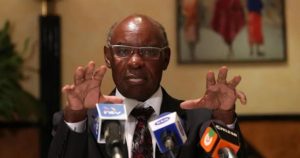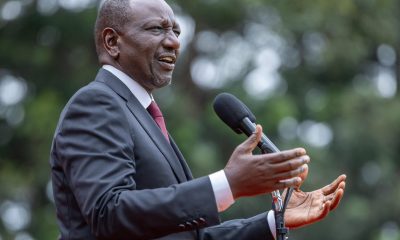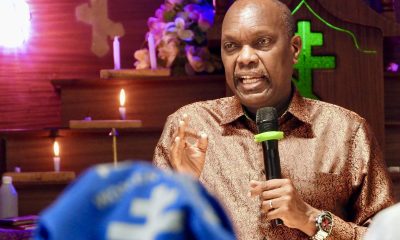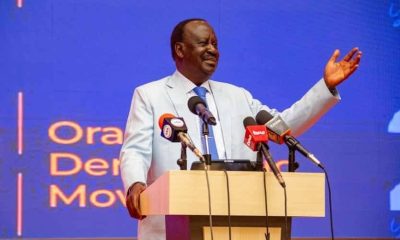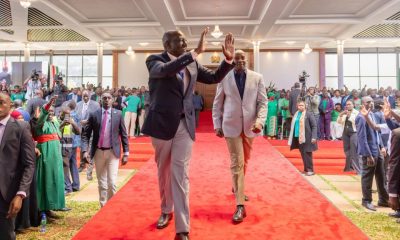Business
Ruto-Linked Amaco Wins Billions in Matatu Insurance Cover, Cutting SK Macharia’s Dominance
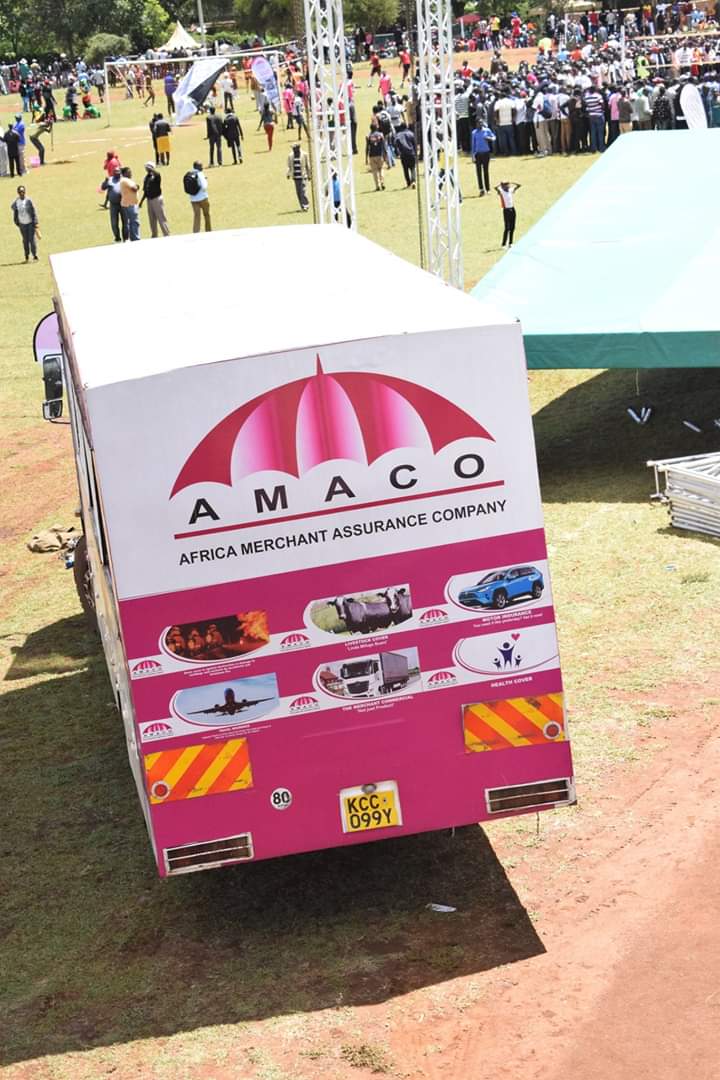
A dramatic shift is reshaping Kenya’s lucrative matatu insurance market, with Africa Merchant Assurance Company (Amaco) – an insurer with ties to President William Ruto’s family – capturing billions of shillings in business at the expense of media mogul SK Macharia’s Directline Assurance.
Insurance Regulatory Authority data reveals that Amaco has more than doubled its market share in public service vehicle insurance within just one year, jumping from 14.95 percent to 37.51 percent of the Sh5.29 billion matatu insurance market by December 2024.
This aggressive expansion has come directly at the cost of Directline Assurance, which has seen its long-held dominance erode dramatically.
The company’s market share plummeted from 61.56 percent to 47.97 percent over the same period – marking the first time Directline has fallen below 50 percent market share since regulators began tracking PSV insurance as a separate category.
The numbers tell a stark story of market redistribution.
Amaco gained Sh1.15 billion in PSV premiums, reaching Sh1.98 billion – a staggering 139.7 percent increase.
Meanwhile, Directline hemorrhaged Sh860 million in business, with its PSV premiums falling 25.4 percent to Sh2.54 billion.
Political undertones
The business battle carries significant political undertones, given the historical rivalry between President Ruto and SK Macharia.
The media mogul consistently backed opposition leader Raila Odinga in successive presidential campaigns, including the 2022 election where Odinga unsuccessfully challenged Ruto for the presidency.
Amaco’s ownership structure reveals deep connections to the first family.
Business Registration Services records show President Ruto’s family holds 190,000 shares (15.83 percent) through Yegen Farms Limited, where First Lady Rachel Ruto and daughter Charlene Ruto are listed as shareholders.
This represents a nearly four-fold increase from their 50,000 shares in July 2022.
The president’s close associates also maintain significant stakes.
Charles Tela Alusala, who manages the family’s business affairs, owns 130,000 shares (10.83 percent). Dr. Ruto’s friend Silas Kibet Simwato, who chairs the Digital Health Agency, controls shares worth 23.33 percent through direct ownership and family companies.
Directline’s troubles
Industry analysts attribute Directline’s market losses to internal turmoil that reached a crescendo in 2024.
The company became embroiled in shareholder disputes, with SK Macharia claiming unauthorized alterations to the share registry through forged documents had diluted his ownership stake.
The conflict escalated when Macharia ran public advertisements declaring all Directline insurance policies “invalid” due to what he termed “illegal” shareholding changes.
This unprecedented move rattled policyholders and drew regulatory intervention, with the Insurance Regulatory Authority successfully obtaining court orders to stop the campaign.
The dispute intensified when Macharia withdrew Sh400 million from the company amid the boardroom battles, prompting regulatory action in October 2024 seeking reversal of the withdrawal.
Amaco may have also benefited from the collapse of Invesco Assurance, another PSV insurer that entered statutory management in 2024 after defaulting on claims payments. Invesco previously held 8.15 percent of the PSV market, worth Sh138.5 million in premiums.
The two dominant players now control 85.5 percent of Kenya’s PSV insurance market, with smaller competitors including First Assurance (9.45 percent), GA Insurance (2.62 percent), and others sharing the remainder.
Beyond PSV insurance, Amaco has expanded aggressively across motor insurance segments. Its commercial vehicle premiums (excluding PSVs) jumped 2.7 times to Sh657.4 million, while private motor cover premiums rose 29 percent to Sh515.4 million.
The transformation of this critical insurance sector reflects broader shifts in Kenya’s business landscape, where political connections increasingly influence market dynamics in strategic industries.
As matatu insurance remains essential for the country’s public transport system, the concentration of market power between these two rivals bears watching for both economic and political implications.
The battle for matatu insurance supremacy appears far from over, with billions of shillings in annual premiums at stake and the added dimension of Kenya’s complex political rivalries driving the competition.
Kenya Insights allows guest blogging, if you want to be published on Kenya’s most authoritative and accurate blog, have an expose, news TIPS, story angles, human interest stories, drop us an email on [email protected] or via Telegram
-

 Grapevine1 week ago
Grapevine1 week agoAlleged Male Lover Claims His Life Is in Danger, Leaks Screenshots and Private Videos Linking SportPesa CEO Ronald Karauri
-

 Lifestyle1 week ago
Lifestyle1 week agoThe General’s Fall: From Barracks To Bankruptcy As Illness Ravages Karangi’s Memory And Empire
-

 Grapevine3 days ago
Grapevine3 days agoRussian Man’s Secret Sex Recordings Ignite Fury as Questions Mount Over Consent and Easy Pick-Ups in Nairobi
-

 Investigations2 weeks ago
Investigations2 weeks agoEpstein Files: Sultan bin Sulayem Bragged on His Closeness to President Uhuru Then His Firm DP World Controversially Won Port Construction in Kenya, Tanzania
-

 Business2 weeks ago
Business2 weeks agoKRA Can Now Tax Unexplained Bank Deposits
-

 Investigations1 week ago
Investigations1 week agoEpstein’s Girlfriend Ghislaine Maxwell Frequently Visited Kenya As Files Reveal Local Secret Links With The Underage Sex Trafficking Ring
-

 News1 week ago
News1 week agoState Agency Exposes Five Top Names Linked To Poor Building Approvals In Nairobi, Recommends Dismissal After City Hall Probe
-

 Business1 week ago
Business1 week agoM-Gas Pursues Carbon Credit Billions as Koko Networks Wreckage Exposes Market’s Dark Underbelly

